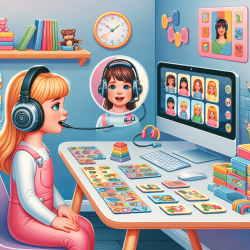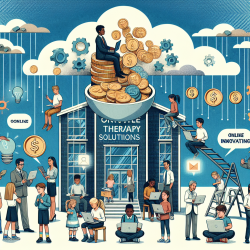Introduction
In the landscape of educational and mental health services, the need for effective cross-sector collaboration has never been more crucial. The research article "Implementation of a School Mental Health Learning Collaborative Model to Support Cross-Sector Collaboration" sheds light on a model designed to bridge the gap between education and mental health sectors. This blog aims to explore the outcomes of this research and encourage practitioners to enhance their skills through the implementation of these findings.
Understanding the Learning Collaborative Model
The Learning Collaborative (LC) model, as discussed in the research, is a structured approach that brings together school teams and community organizations over a year-long period. This model includes didactic and experiential learning opportunities, guest speakers, district-specific improvement goals, peer learning, and individualized consultation support. The LC aims to improve knowledge, skills, and systemic changes in cross-sector collaboration.
Key Outcomes of the Research
The study highlights several positive outcomes from the implementation of the LC model:
- Improved Knowledge and Skills: Participants reported enhanced understanding and skills in navigating different systems and community resources.
- Systemic Changes: The LC fostered systemic improvements in school districts, supporting children with behavioral health needs more effectively.
- High-Quality Engagement: Respondents consistently rated the quality of the LC as high, finding the topics useful for day-to-day practice.
Implications for Practitioners
For practitioners looking to improve their skills and foster better collaboration, the LC model offers several takeaways:
- Engage in Structured Learning: Participate in structured learning opportunities that combine didactic and experiential elements.
- Focus on Systemic Improvement: Implement quality improvement cycles, such as the Plan-Do-Study-Act (PDSA) model, to foster systemic changes.
- Leverage Peer Learning: Engage in peer learning to share experiences, challenges, and solutions.
Encouraging Further Research
While the LC model has shown promising results, further research is encouraged to explore its application in diverse settings and its long-term impact on student outcomes. Practitioners are urged to delve deeper into the nuances of cross-sector collaboration and contribute to the growing body of knowledge in this field.
Conclusion
The research on the Learning Collaborative model underscores the importance of structured, cross-sector collaboration in supporting children's mental health. By implementing the insights from this study, practitioners can enhance their skills, foster systemic improvements, and ultimately, better support students and their families.
To read the original research paper, please follow this link: Implementation of a School Mental Health Learning Collaborative Model to Support Cross-Sector Collaboration.










